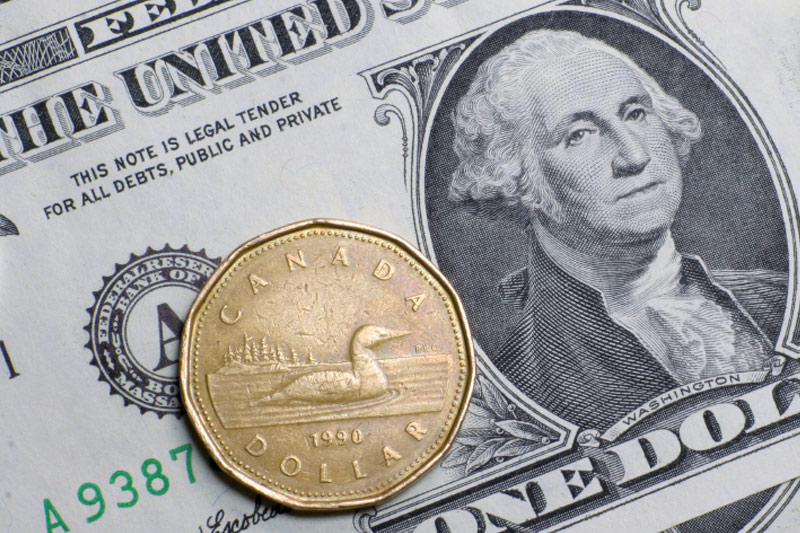Investing.com - The U.S. dollar fell to session lows against the Canadian dollar on Monday after official data showed that Canada’s economy expanded more strongly than forecast in January.
USD/CAD hit session lows of 1.1003, and was last down 0.40% to 1.1015, holding just above Friday’s one-month lows of 1.0999.
The pair was likely to find support at 1.0950 and resistance at 1.1066, the session high.
The loonie, as the Canadian dollar is also known, moved higher after Statistics Canada reported that gross domestic product expanded 0.5% in January, following a 0.5% contraction in December. Market expectations had been for growth of 0.4%.
On a year-over-year basis, Canada’s economy expanded 2.5% in January, following growth of 2.4% in the preceding month.
The euro erased gains against the loonie following the data, with EUR/CAD slipping 0.10% to 1.5192, down from highs of 1.5260.
The single currency gained ground against Canada’s dollar earlier in the trading day, despite data showing that the annual rate of inflation in the euro zone fell to the lowest level since November 2009 in March.
The annual rate of consumer inflation in the euro area slowed to 0.5% this month from 0.7% in February, well below the European Central Bank’s target of just under 2%.
The weak data fuelled expectations that the ECB could take steps to bolster the fragile recovery in the euro area at its upcoming policy meeting on Thursday.
However some investors expect the ECB to leave monetary policy on hold this week, after Bundesbank head Jens Weidmann said Saturday that the euro zone is not in a deflationary cycle, and that the slowdown was due in large part to temporary factors, such as falls in food and energy prices.
